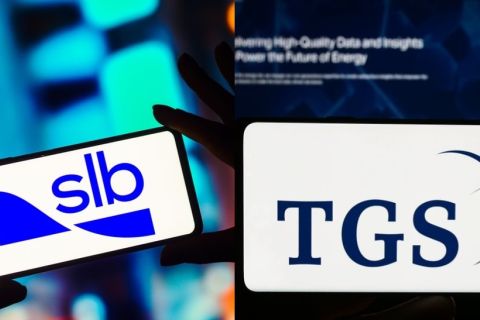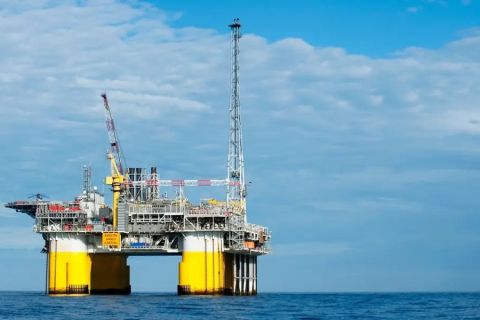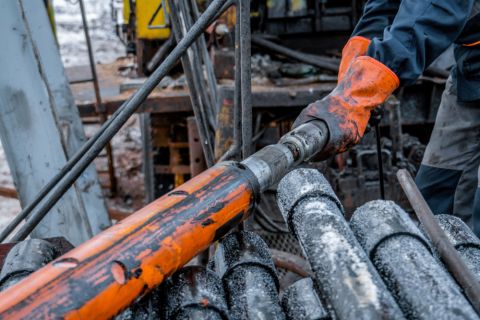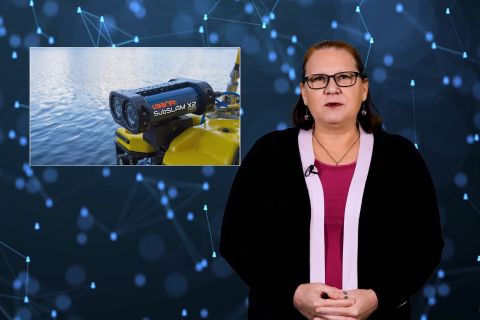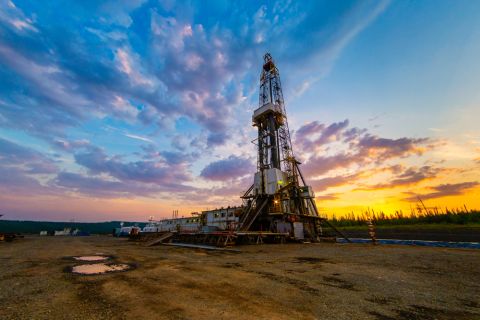This summer saw a quartet of small-cap public exploration and production companies going private. It also marked the first anniversary of the Sarbanes-Oxley Act, which has upped the disclosures and oversight-and the costs-associated with being public. Coincidence? Not completely. There has been much speculation about how the increased costs of staying public will affect small-cap E&P companies. And for four such companies that have gone private or are currently in the process of doing so, there were many references to Sarbanes-Oxley in their filings with the SEC. The ramifications have been on top of pressure the companies were already experiencing to keep up cash flow, stock price, liquidity and access to capital. "In the long run, I think you're going to see fewer small [public] companies, not just in my sector, but in the overall market, because the costs associated with being public aren't going to be worth it," says Phil McPherson, associate director, oil and gas group, for Irvine, California-based investment banker C.K. Cooper & Co., which specializes in small-caps. It is tough to tell with much certainty what the long-term costs will be at this point, he adds. "I think people are front-loading a lot of their costs associated with [Sarbanes-Oxley]. They're going out and getting their [directors and officers] insurance, and all these things that cost a lot of money up front. But I don't think we can say yea or nay on what the actual costs are going to be in the long run. I think it's going to take a few quarters to see what people are actually spending on this." Poor corporate performance and lack of attention from Wall Street are more substantial reasons for a company to go private, says Les Childress, who covers small-cap energy companies for J.M. Dutton & Associates, El Dorado Hills, California. "I think clearly it's tougher for smaller E&P companies to continue as publicly traded companies under Sarbanes-Oxley," Childress says. "However, I don't think that's the sole reason why a small E&P company that's publicly traded ought to consider an alternative, whether that's a merger, a sell-out or going private...If anybody's using that as an excuse solely, by itself, I think it's a poor one." Sarbanes-Oxley may not be the sole reason for a company to go private, but it can weigh on the minds of executives who are contemplating the company's future. New York-based Greka Energy Corp., whose shareholders approved a going-private transaction in late July, reported that maintaining its public status has historically ranged from $1.5- to $2 million annually. The cost could grow by another $500,000 in legal and consulting fees during 2003, it added in a filing with the SEC. In May, Greka chairman and chief executive officer Randeep S. Grewal formed Alexi Holdings Ltd. to effect a reverse merger with Greka, taking the company private. Directors came to feel the company was not gaining any benefit from being public, according to an SEC filing. Besides the costs due to Sarbanes-Oxley, its small market capitalization and mix of E&P and asphalt assets have made it somewhat of an enigma among Wall Street analysts and institutional investors, it adds The company had been selling assets and refocusing for two years, as its stock price tumbled, and it had a working capital deficit. "During the period of time that the company's market cap exceeded $50 million, [it] generated some interest from institutional investors, and three analysts followed [it] on a regular basis, because they viewed us as an E&P company," Greka reported. "For reasons that are partially market-driven and partially related to our planned evolution into [asphalt]-a business that does not have a recognized capital market sector followed by an analyst-the value of our common stock has decreased...." Denver-based producer Inland Resources, with interests in the Monument Butte Field in the Uinta Basin of Utah, went private in June in a sale to Inland Holdings LLC, an entity managed by an affiliate of Trust Company of the West (TCW); SolVation Inc.; and Hampton Investments LLC. The market for Inland's shares had been limited and illiquid, the company reported in its SEC filing: it had about 507 shareholders at year-end 2002, of which 456 each owned fewer than 100 shares, and 336 each owned 10 or fewer. About 90% of the outstanding shares were held by TCW and Hampton. The average daily volume of trading during 2002 was about 450 shares. And the costs of staying public are climbing, it added. Compliance had run about $150,000 a year; it expected Sarbanes-Oxley to increase fees and insurance premiums and also increase the difficulty in attracting qualified board members. "The direct and indirect expenses incurred in being publicly traded are one of the most significant expenses that can be eliminated without negatively affecting operations," it reported. Inland began reviewing options for its future as early as 2001, when it retained Lehman Brothers Inc. and Petroleum Place Energy Advisors to help it merge with or be sold to a third party. Information about the company was sent to more than 80 prospective buyers, but no one made an offer. Shareholders of Dallas-based Aviva Petroleum (OTC Bulletin Board: AVVP) voted at press time to go private. As of June 30, Aviva had about 4,300 registered shareholders. Approximately 4,100 held fewer than 5,000 shares for a total of less than 5% of outstanding. Aviva operates in some fairly risky areas-Colombia and offshore the United States. Its board has two directors. "Since at least the beginning of 2002, it has been clear to both directors that liquidity would be a constant problem because of the age and location of the company's properties," Aviva reported to the SEC. Suffering from a severe cash crunch, Aviva added that it would be difficult and expensive for it to comply with the requirements of being a public company, estimating direct compliance costs for 2003 would exceed $100,000. In July, more than 78% of Exco Resources Inc. shareholders approved a going-private offer made by chairman and chief executive officer Douglas Miller and some other members of management. During late 2001, Miller became dissatisfied with Exco's stock price, which traded under $17 during fourth-quarter 2001, and he began studying the option of a management buyout, according to a filing with the SEC. An offer was made in July 2002. In response, the Exco board hired Merrill Lynch, which contacted 23 companies to gauge their interest in acquiring Exco. Only Miller's group submitted a firm proposal. The board had even looked at forming a royalty trust for its Canadian operations but decided against it. Miller subsequently sweetened the original $17-per-share offer to $18, and shareholders approved. Unless a company is performing particularly poorly and is being completely ignored by Wall Street, Childress advises staying patient and staying public. "Going private these days I think would be very unwise for even an average oil and gas company because for one thing, commodity prices are way up, especially natural gas," Childress said. "This is the type of price environment that even if you're a marginally run company, you can make a lot of money...You really have to be doing a lot of things wrong not to make money in an environment like that. "Small E&P companies today, if they're positioned right-if they have a strong reserve base, i.e., a fairly long life to the natural gas reserve base; [and are] mostly onshore, not offshore where there's a lot of complications and it tends to eat up even more capital-I think you just need to be patient."
Recommended Reading
TGS, SLB to Conduct Engagement Phase 5 in GoM
2024-02-05 - TGS and SLB’s seventh program within the joint venture involves the acquisition of 157 Outer Continental Shelf blocks.
2023-2025 Subsea Tieback Round-Up
2024-02-06 - Here's a look at subsea tieback projects across the globe. The first in a two-part series, this report highlights some of the subsea tiebacks scheduled to be online by 2025.
StimStixx, Hunting Titan Partner on Well Perforation, Acidizing
2024-02-07 - The strategic partnership between StimStixx Technologies and Hunting Titan will increase well treatments and reduce costs, the companies said.
Tech Trends: Autonomous Drone Aims to Disrupt Subsea Inspection
2024-01-30 - The partners in the project are working to usher in a new era of inspection efficiencies.
Drilling Tech Rides a Wave
2024-01-30 - Can new designs, automation and aerospace inspiration boost drilling results?

